Fine motor development is one of the areas that our Sensory Seeker needs work on. I think it is quite common in children starting school to need help to hold a pencil correctly. The Occupational Therapist thought that he is hyper-mobile in his hands and suggested types of exercises to strengthen them.
Things at School to help Fine Motor Development
To help his fine motor development at school he does activities such as threading, and using these tweezers to move small objects from one basket to another. Our Sensory Seeker has special scissors, which can be held by both himself and an adult. All the children work on their fine motor development by practising writing on white boards, first over the top of letters and then without. Well I am delight to say that our son is progressing really well. He can now write his name unaided (jut please ignore the fact that a few of the letters are backwards, small steps) even without the letters underneath.
Things we do at Home to help Fine Motor Development
At home helping him with his fine motor development has been largely through play. Now he is not putting toys into his mouth (so much) we have encouraged more small world play, with less chunky toys. This means he has to uses his fingers more to hold them.
Our Sensory Seeker really likes Superheroes and Villains at the moment. He is lucky enough that we have some in Lego form. Lego is just perfect for fine motor development and he loves changing the heads and bodies on the people, as well as building models. He is loving Lego even more since watching The Lego Movie.
We also have several Lego Superheroes sticker books for him. These are really good for his little fingers to get in and peel them off the book, and stick them where he wants them. He loves stickers of any type at the moment, and has them as rewards at school too.
Another favourite activity that helps with fine motor development is Playdough. I think it that Playdough is good for hand development in general, as well as imagination and mark making (amongst many many fantastic uses).
Of course all this play then helps with his fine motor development for school activities such as painting, writing, gluing etc – he is doing much better at holding things, and is less likely to use a grab hold, but still holds the very end until prompted.
We are encouraging him to do lots of colouring in to help with his fine motor development, and again finding pictures that interest him really helps.
Talking of keeping his interest, I bought some scissors that leave a crinkly pattern on the paper when you cut with them, and just let him free to cut plain paper how he liked. 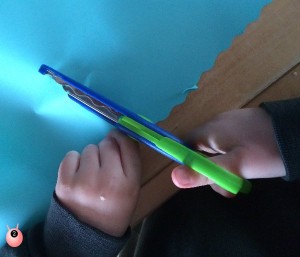
It is important for his future development that we keep helping him build on his fine motor development skills, to enable to do things independently. With encouragement, he is getting much better at being able to handle cutlery and eat smaller pieces of food (such as raisins).
His diet remains fairly poor but I am happy that it is improving. We have discovered a love of pancakes, which he wants every morning! I am happy as they are egg, milk and flour, plus he eats them with bananas. This is also a great opportunity to help with his hands as he loves to whisk up the mixture.
Do you or someone you care for have trouble with fine motor development or your hands? Do you have any simple ways to help?
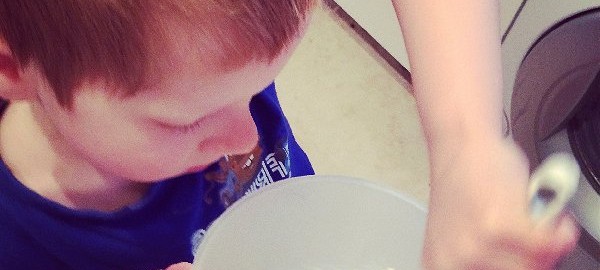
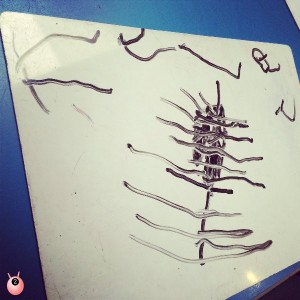
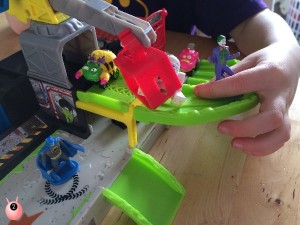
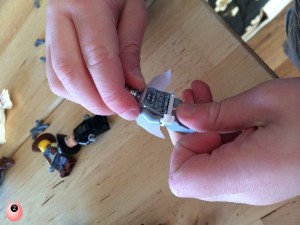
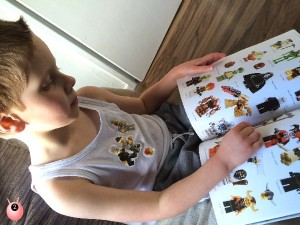
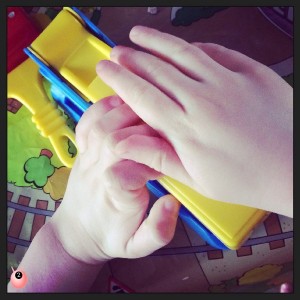
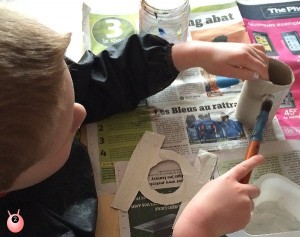
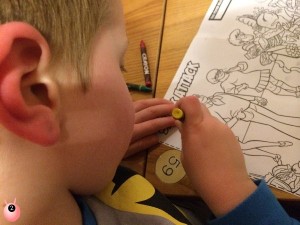
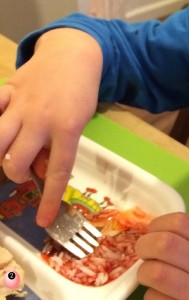
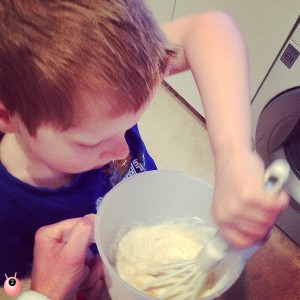

Such simple but effective activities. I only recently discovered how brilliant it is to just let them cut paper Scissors and how much it refines fine motor skills.
Great ideas, we need to work on this too.
Those a LOTS of great examples and they are all so easy to do..! Thanks for all the tips!
Sometimes it is the most simplest of things that are the most effective!
(Oh and we currently have a daily request for pancakes too!!) x
You’re making me much more aware of the importance of sensory skills. These ideas are lovely, thank you 🙂
Great ideas. We have adapted cutlery for fine motor, which has been excellent and really recommend as it shows by depressions in the handles where it should be held. Also try ‘gloop’ – mix of cornflour and water, and shaving cream for sensory and fine motor. Making letter shapes in the shaving cream uses whole hand, giving good feedback to the whole hand and arm of the movements involved. We found an old fashioned chalk board is also good as the feedback to the hand and fingers is more pronounced than a whiteboard.
Clothes pegs and a small line for pegging pictures onto is great for fine pincer movements . We have a basket of OT items which we bring out and add to. It has to be fun, or the immense effort isn’t worth it for these children – it’s very tiring to concentrate physically and mentally.
I love how you’ve incorporated all these activities into everyday tasks. Great suggestions.
My JJ needed help developing his muscle tone and fine motor skills so I remember doing lots of these things. Great tips Joy. Mich x
some super skill building here Joy i love the fact that he is really looking forward to getting involved in his eating with helping to whisk and take part thats a super skill to learn
x
My boy loves to play with playdoh & lego too it really calms him down when he is being a ‘free spirit’ thanks for the tips #SSAmazingAchievements
What a great post of skill building.
I tend to forget that doing these sorts of things improve fine motor skills. Luckily my two seem to have good fine motor skills but thanks for the reminder of the activities that help! Great post x
Some great ideas for developing those fine motor skills. Hopefully we will be able to work on them as Ethan gets older too. It really looks like your little superstar is making fantastic progress with his fine motor skills. I really hope we get into logo, I loved that growing up.
Thanks for linking up with Small Steps Amazing Achievements :0)
x